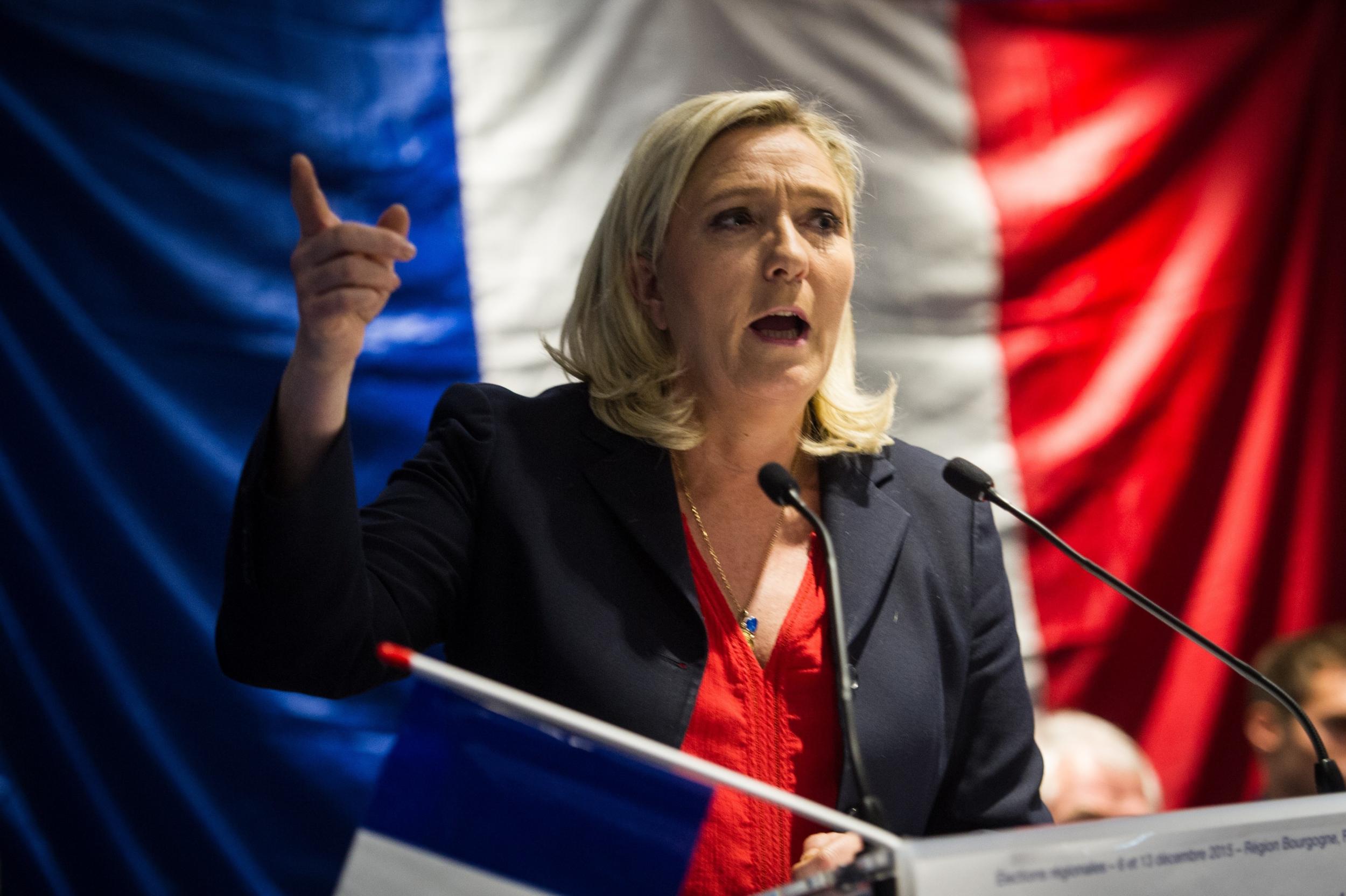EU’s Nightmare Year Ends With Le Pen Risk Haunting Investors

EghtesadOnline: German Chancellor Angela Merkel may be the anchor that has held the European project firm through a decade of crises, yet it isn’t her fight for re-election next year that is keeping investors awake at night. That honor goes to France.
Voters will choose new leaders in the Netherlands, then France and Germany over the next 12 months -- with Italy and Greece conceivably also triggering snap elections. Amid this unprecedented concentration of major ballots, it is the low-probability, high-impact prospect of Marine Le Pen entering the Elysee in Paris that’s of most concern to five fund managers contacted for this article, Bloomberg reported.
As 2016 closes with the shock of a terror attack in Berlin and officials preparing to negotiate Britain’s exit from the European Union, the French nationalist has the potential to make the next year even more tumultuous for Europe than the last. Le Pen is running second in the polls and has tapped into anger over immigration and the lackluster income growth that is fueling populist movements around the world.
What matters for investors, though, is that she is promising a referendum on leaving the European Union. If Le Pen’s National Front can pull off an upset like Donald Trump’s victory in the U.S., she’ll have a path to breaking up the EU and its common currency that even Merkel may struggle to block.
A Le Pen win “would be much more devastating for markets than Merkel losing in Germany,” said Alan Miller, founding partner of SCM Direct, a London-based private client manager. That’s because a French EU referendum would be like a rerun of Brexit, except that France leaving the union could also mean the breakup of the euro, he said. The consequences of that could surpass even those of the 2008 Lehman Brotherscollapse.

While all of those consulted saw a Le Pen victory as unlikely, none are lowering their guard because the tail risk is so significant. After Trump’s victory in November and the U.K. vote to leave the EU, investors have learned that sometimes the candidate or cause that “can’t win” can.
“Our investors are in the same camp,” said Megan Greene, managing director and chief economist at Manulife Asset Management. “They are all focused on the French elections.”
Trailing in Polls
After leading polling for the first-round presidential vote for most of the past year, Le Pen has slipped behind Francois Fillon since he claimed the nomination of the center-right Republicans in November. Le Pen would lose to Fillon by 66 percent to 34 percent in the runoff, according to a Kantar Sofres poll last month.
Bookmakers give the National Front leader about a 25 percent chance of turning that around over the next four months. At this point in the U.S. campaign, polling analysts at FiveThirtyEight.com gave Trump a 23 percent chance of winning.
Markets have so far responded positively to the president-elect’s plans for tax cuts and deregulation of Wall Street, despite his anti-trade tirades during the campaign. The Dow Jones Industrial Average is up 7 percent since the election.
That relatively sanguine attitude may change for the French election, which -- because of the risk to the euro -- could prove to be an economy destroying event. A December survey by Bank of America Merrill Lynch found that fund managers around the world see the EU’s disintegration or a default of its banks as the biggest tail risk they face, dwarfing concerns over Brexit.
Safety Valves
Although the loss of Merkel would also be damaging, she probably would be replaced by another fundamentally pro-European chancellor if she loses elections next fall. And although current polls suggest the anti-immigrant and anti-EU Party of Freedom could claim the most seats in the Netherlands in March, mainstream parties are likely to club together to keep its leader, Geert Wilders, out of office.

The EU is already facing the biggest threats in its almost 60-year history, with the U.K. leaving, populists running Hungary and Poland, and Italy’s fourth unelected prime minister in a row trying to keep the anti-euro Five Star Movement at bay. Investors fear a Le Pen victory could push it over the edge.
“I want to hold a referendum on France’s membership of the EU,” Le Pen said in a Dec. 7 interview with TF1 television. “Believe me, I will organize it and above all I will respect the will of the people.”
Le Pen would need to amend the constitution to take France out of the EU, a tall order that requires a super majority across both houses of parliament -- although as the U.K. has shown, lawmakers can be reluctant to block the popular will once it has been expressed in a even a non-binding vote. In 2005, both the French and the Dutch voted against a planned EU constitution by clear margins.
A victory for Le Pen in May would be an earthquake in European politics even if she decided against calling an EU referendum, because her France first approach would destroy the Franco-German cooperation that has sustained the bloc since its inception, says Mark Leonard, director of the European Council on Foreign Relations, a think tank.
“Having someone like her at the table would be almost impossible for the EU,” he said. It would create “a complete existential crisis for the European Union.”


